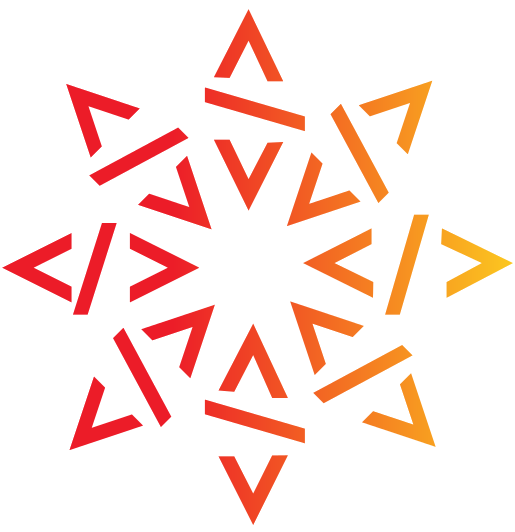How libraries shape the future of research infrastructure

Libraries advance teaching, research, and learning by providing resources, enabling discovery, and offering expert guidance. As software source code becomes increasingly central to contemporary scholarship, libraries must support researchers who work with it. In this series of interviews, professionals share their approach to research software.
The stereotype of libraries as quiet, outdated places, often symbolized by a scolding action figure (a tribute to Nancy Pearl), persists in popular culture. However, librarians’ daily work focuses on shaping the future. That’s why in 2018, the Association of Research Libraries (ARL) highlighted the increased need for collaboration to ensure efficient and equitable access to software: “Ensuring equitable and efficient access to software and software-dependent materials will increasingly require collaboration and resource sharing.” This collaboration can involve library support for open science infrastructures.
Cécile Swiatek Cassafieres is a member of the Executive Board of the League of European Research Libraries (LIBER) and sits on the Board of SPARC Europe. In particular, Cécile Swiatek Cassafieres contributed to the Unesco recommendation on Open Science and its toolbox, on behalf of LIBER. Her publications supporting Open Science infrastructures are available on ORCID.
Key takeaways
“When it comes to open science, research infrastructures, and the open dissemination of research results, universities have every interest in being represented by their libraries. As trusted third parties, libraries are widely identified internationally as ‘engaged and trusted hubs,’ as LIBER puts it.”
“Preserving and providing long-term access to source code is an extension of libraries’ traditional missions: it’s about making knowledge available for the benefit of all. We need to provide access to both research results and the methods used to produce them.”
“Librarians and specialists in scientific and technical information need to take action on software and code to raise awareness of these issues […].”
Generally speaking, why should libraries support research infrastructures?
Academic and research libraries can provide two types of support: the first is financial support, to contribute directly to the maintenance, health, and sustainability of the infrastructure. Libraries can also provide support by getting involved in governance bodies. The aim is to make the voice of higher education and public research institutions heard through the discourse of libraries, known for their reliability, reflexive feedback, and organizational stability.
Libraries’ participation in governance bodies adds value to their institutions. When it comes to Open Science, research infrastructures, and the open dissemination of research results, universities have every interest in being represented by their libraries. As trusted third parties, libraries are widely identified internationally as ‘engaged and trusted hubs,’ as LIBER puts it. One of the challenges for libraries is to be identified as key players. This means relaying their institution’s strategy and participating in its development.
What criteria should organizations consider when selecting infrastructures to support?
It’s important to ensure that the funded structure meets national, European, and international quality criteria. Following the University of Paris Nanterre’s example, we can utilize the National Fund for Open Science’s criteria and the selection processes of Scoss and IOI. The challenge is to ensure that the structure to be financed is aligned with the university’s strategy: while the use of standards and other technical criteria guaranteeing good interoperability with other systems are essential points, it is also essential to take an interest in the values and principles defended by the infrastructures.
How can libraries support research software through infrastructure like Software Heritage?
Preserving and providing access to source code is a natural extension of libraries’ traditional role: to make knowledge available for the benefit of all. We need to provide access to research results and the information that went into producing them. This content must be readable, in the original sense of the word. This is a first step, but some libraries go further, linking the question to the field of data management.
A 2023 UNESCO report (Open Science Outlook 1) identifies a lack of a standardized framework and uneven understanding of open science themes as obstacles to resource development. If we focus on software in research, where do we stand in libraries in France and abroad?
In Europe, situations vary widely from one country to another. However, we can see that research support services, including those outside libraries, are becoming aware of the need to extend the Open Science policy to all components of academic knowledge. This first stage of awareness has been reached. In Europe, the EOSC is building a framework conducive to a homogeneous, standardized approach for example through the EVERSE project from 2024 to 2027.
Finally, Unesco plays a fundamental role at the international level, in particular with the Open Science Monitoring Initiative (OSMI) which is being set up, and with countries and regions of the world where open science is still an emerging issue.
What are the strengths of libraries when it comes to working on a subject that may still be perceived as far removed from their usual activities?
It’s in librarians’ best interest to promote their key missions to show their richness and diversity: a library is more than just reading rooms and printed books. More broadly, libraries aim to document, describe, and provide access to this documentation. Libraries are resource providers, service platforms, and living spaces: as far as code and software are concerned, they play above all the fundamental role of access services and information centers.
To develop this aspect of libraries and make it more visible, I think it’s important to open up discussions within institutions, between libraries, research departments, and political teams, to define a strategy and implement actions around these emerging themes. This initial step will enable the production, dissemination, and promotion of institutional open science resources and strategies.
If you were to talk to another library director, how would you describe Software Heritage’s contribution to their department?
One must assume that working on software should be seen as something obvious, if you want to avoid limiting thoughts. We have a number of success stories and, I hope, indicators of the adoption of software and code-related topics in libraries. Librarians and specialists in scientific and technical information need to take action on software and code to raise awareness of these issues, make these developments understandable to teams to facilitate their mobilization on these issues, and enhance the value of the actions taken by the documentary structure on these issues in the eyes of all. It’s an approach that can be described as inclusive.
Peer exchanges play a major role in the circulation of ideas and influence. We share the same professional references and the same culture. Having librarians as ambassadors for Software Heritage is certainly a strategy worth considering for spreading the word about Software Heritage in the world of academia, knowledge, and research.
From a personal viewpoint, I’d say that the library, which is in charge of supporting infrastructures that foster open science at the University of Paris Nanterre, values Software Heritage’s open approach through the support we’re giving it on behalf of the university from 2025 onwards. The subjects on which Software Heritage is working are in line with those of the most advanced libraries on open science issues. In France, the Ateliers de la donnée (data workshops) focus on the link between software and data, and libraries are very active and regularly lead the way in this field.
To conclude, I think it’s essential to question the practices and tools used by doctoral students. Inviting them to talk about the codes and software they create, modify, and use in the course of their work is certainly a first step towards moving forward together on this subject: young researchers and librarians are often the initiators of dialogue on emerging subjects.
Going further
Support for open science infrastructures at the University of Paris Nanterre:
https://science-ouverte.parisnanterre.fr/strategie-science-ouverte/soutien-aux-infrastructures-de-la-science-ouverte
“Supporting and taking strategic participation in open science infrastructures at the University of Paris Nanterre” https://zenodo.org/records/8398184
Open Science Infrastructure Support from the University of Paris Nanterre (UPN): https://zenodo.org/records/8134805
University of Paris Nanterre Open science strategy: https://zenodo.org/records/7115904
The University of Paris Nanterre academic libraries website:
https://bu.parisnanterre.fr/le-service-commun-de-la-documentation-scd
Open science infrastructures: https://hal.parisnanterre.fr/hal-04142253
“Sustainable and collaborative development of research support services at the university library of Paris Nanterre (France):” https://zenodo.org/records/10559949
Unesco recommendation on open science: https://unesdoc.unesco.org/ark:/48223/pf0000379949_fre
Unesco’s Open Science tools and resources: https://zenodo.org/communities/unesco-science/

